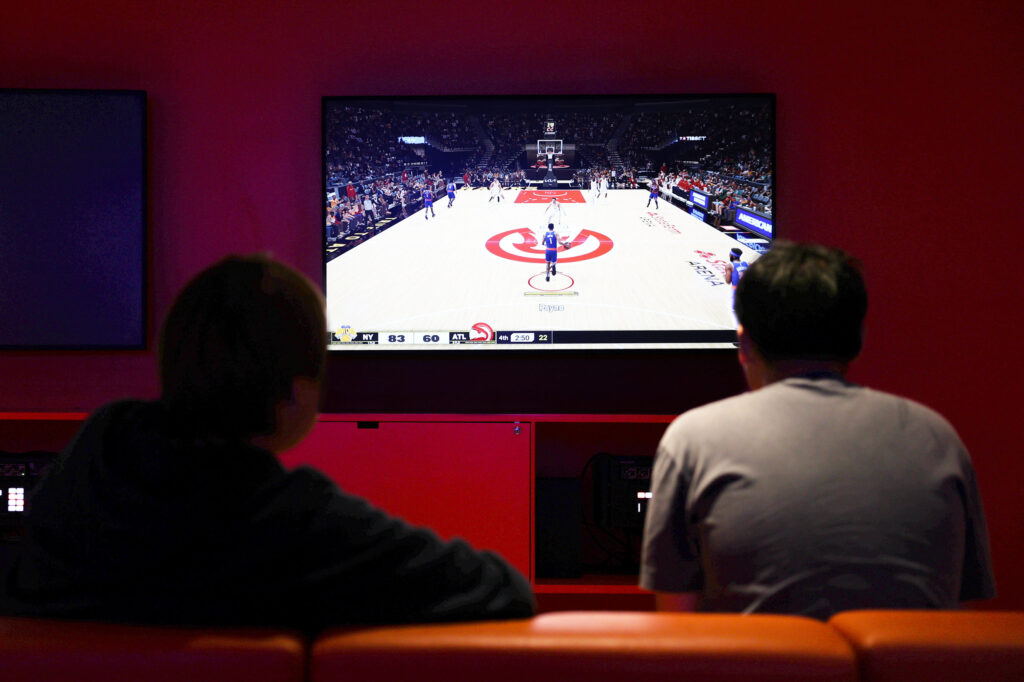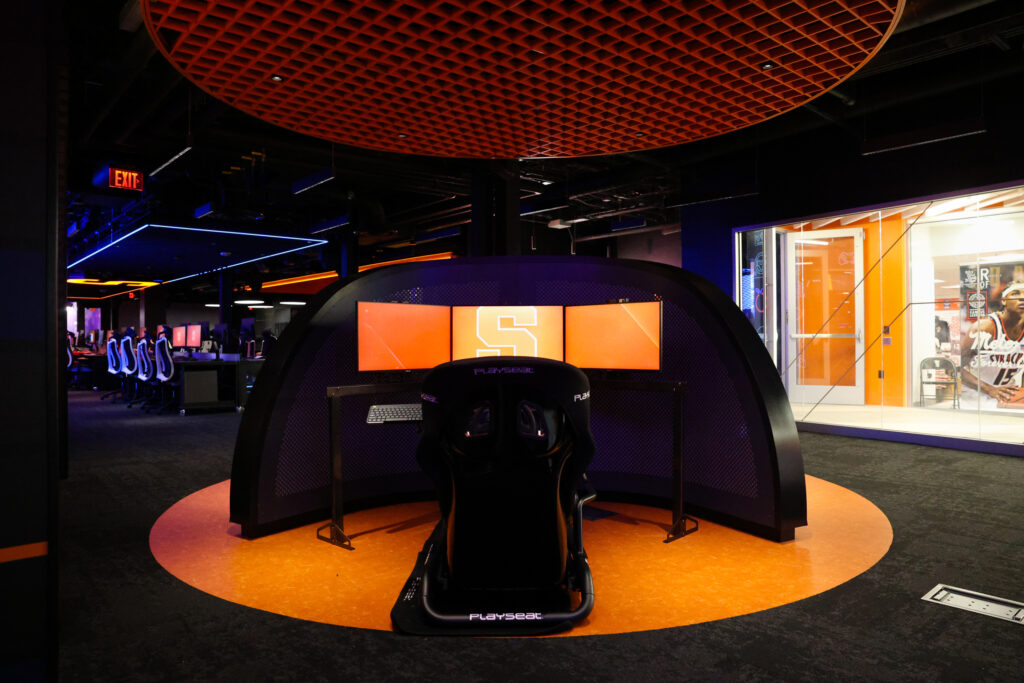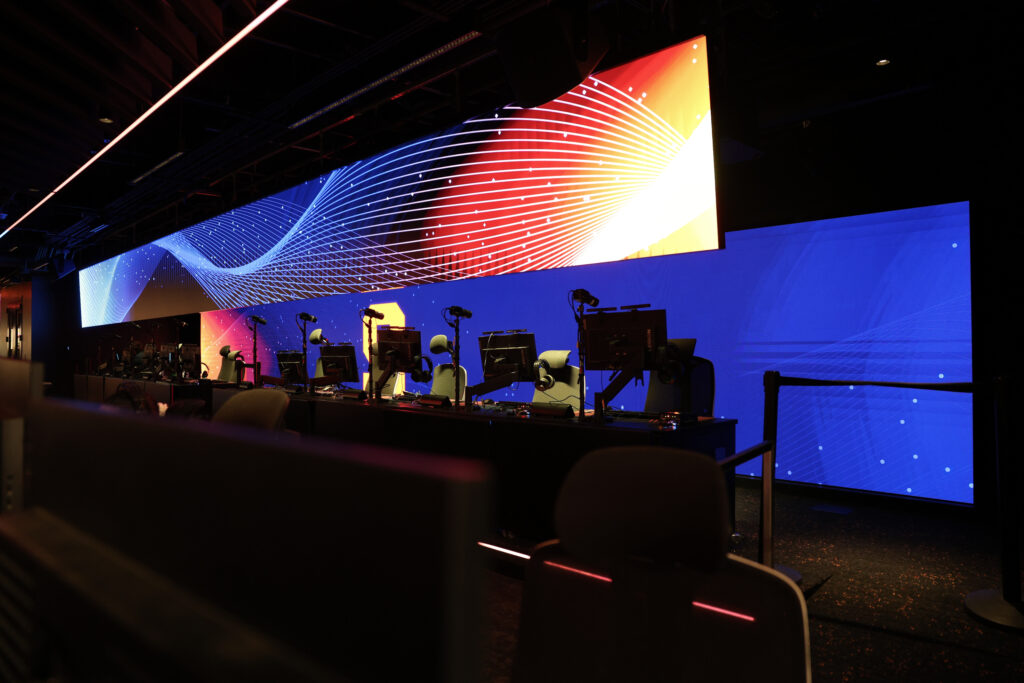Syracuse esports levels up
Syracuse esports levels up
SU transformed its esports team from a gaming club into a varsity program with a nationally recognized major, corporate partnerships, and championship trophies in just three years.

When Braedon Cheverie-Leonard arrived at Syracuse University in 2021, there weren’t many esports for someone who had already competed professionally in Call of Duty. There was an esports club and a state-of-the-art gaming lab, but no varsity team, no academic major, and no official university support for competitive gamers. For most students, that might have been a dealbreaker.
Instead, Leonard saw opportunity.
“I ended up talking to admissions and then talking to some higher-ups at the university, eventually the chancellor,” Leonard said.
That conversation would lead to a transformation. In just three years, SU’s once-informal gaming club became a varsity-level program with a nationally recognized major, a championship-winning team, and growing partnerships with companies like Coca-Cola, SCUF, and Gatorade. In 2024, the program won “Esports Program of the Year.”
Now, the Esports Communications and Management major is drawing students from across the country, and pushing SU into a national spotlight as a trailblazer in collegiate competitive gaming and digital media education.

The esports program is SU’s first and only joint degree, shared between the S.I. Newhouse School of Public Communications and Falk College of Sport and Human Dynamics. Launched in 2023, the major is designed to prepare students for a growing global industry.
The 126-credit program combines liberal arts, professional courses, and esports-specific classes. Students begin with foundational coursework, such as Introduction to Esports, Esports Event Management, and Business of Esports, before choosing a track by the end of their sophomore year. The three tracks include business and management, communications, and media and design.
Dr. Joey Gawrysiak, who helped create the country’s first esports major at Shenandoah University, now directs the program at SU. “We have the academics, the staff, the facilities, and the professional development that really nobody else can offer yet,” Gawrysiak said.
In its first year, the major enrolled just nine students. By fall 2025, that number will exceed 50. Most students are drawn not by the desire to compete, but by the chance to work behind the scenes in broadcast, marketing, production, or management roles within the industry.
“I was expecting 25 to 30,” Gawrysiak said. “The fact that we got 41 freshmen, plus transfers, that shows me there’s excitement.”
SU’s program places a strong emphasis on experiential learning. Students get hands-on practice running tournaments, managing teams, editing video, casting matches, and building out content for social media and livestreams. Many of these opportunities happen within the production control room and dedicated gaming arenas, which include over 70 custom gaming PCs and full-scale studio equipment.
Leonard, a sport management major who helped launch the esports initiative, also serves as a recruiter, competitor and Name, Image and Likeness trailblazer.
“I got my controllers for free through SCUF. I worked with Gatorade for a $5,000 deal. Our team gets free haircuts and game-day suits,” Leonard said. “And we’ve got a beverage deal coming up I can’t even announce yet.”
While NIL opportunities for esports athletes aren’t always as lucrative as those in traditional sports, Leonard believes education is the key to ensuring students know their worth.
“I’ve worked with athletics to get esports athletes involved in workshops about NIL,” Leonard said. “Making sure we’re not getting taken advantage of, making sure we’re on platforms like OpenDoors, that’s been huge.”
SU currently fields six varsity teams: Call of Duty, Counter-Strike 2, Overwatch 2, Rocket League, Super Smash Bros. Ultimate, and Valorant. The teams compete in regional and national leagues, including the Power East Conference, a new conference formed in partnership with Boise State, Michigan State and others.

Travis Yang, assistant director of esports and competition, joined SU after coaching at Boise State. “The investment Syracuse is making right now is unmatched,” Yang said. “From direct support by the chancellor to the hiring of a full team, we want to be good at all of it.”
In spring 2024, Syracuse’s Counter-Strike team won a national championship, just two months after Yang started. “That trophy is right there on the shelf,” he said. “It was an incredible moment.”
Yang also helped organize New York State’s Scholastic Esports Championship, hosted on campus this summer. The event brought in 150 high school players from across the state, offering a glimpse at how SU is helping shape the entire talent pipeline, from K–12 through college.
While many esports programs nationwide are housed at smaller Division II or Division III schools, Syracuse is among a small group of Division I universities treating esports with the same structure and seriousness as traditional athletics.
“We’re not under athletics yet, and that makes some NIL and branding things tricky,” Leonard said. “But I really believe esports should be under athletics. That’s something I’ll keep working on.”
For now, SU continues to serve as a model. Gawrysiak said schools like Ohio State, Baylor, and Michigan are closely watching what Syracuse has built— particularly its academic infrastructure and its high-end facilities.
“In five years?” Gawrysiak said. “I want us to be number one in everything…competition, academics, jobs after graduation. And we’re close.”
Leonard, who will graduate in December after completing a full-time internship, says he’s not sure what comes next, but he’s staying in esports, one way or another.
“I love recruiting. I love talking to people and selling them on something I love so much,” he said. “Whether it’s coaching, sponsorship, or team ops…I just want to stay in the game.”
